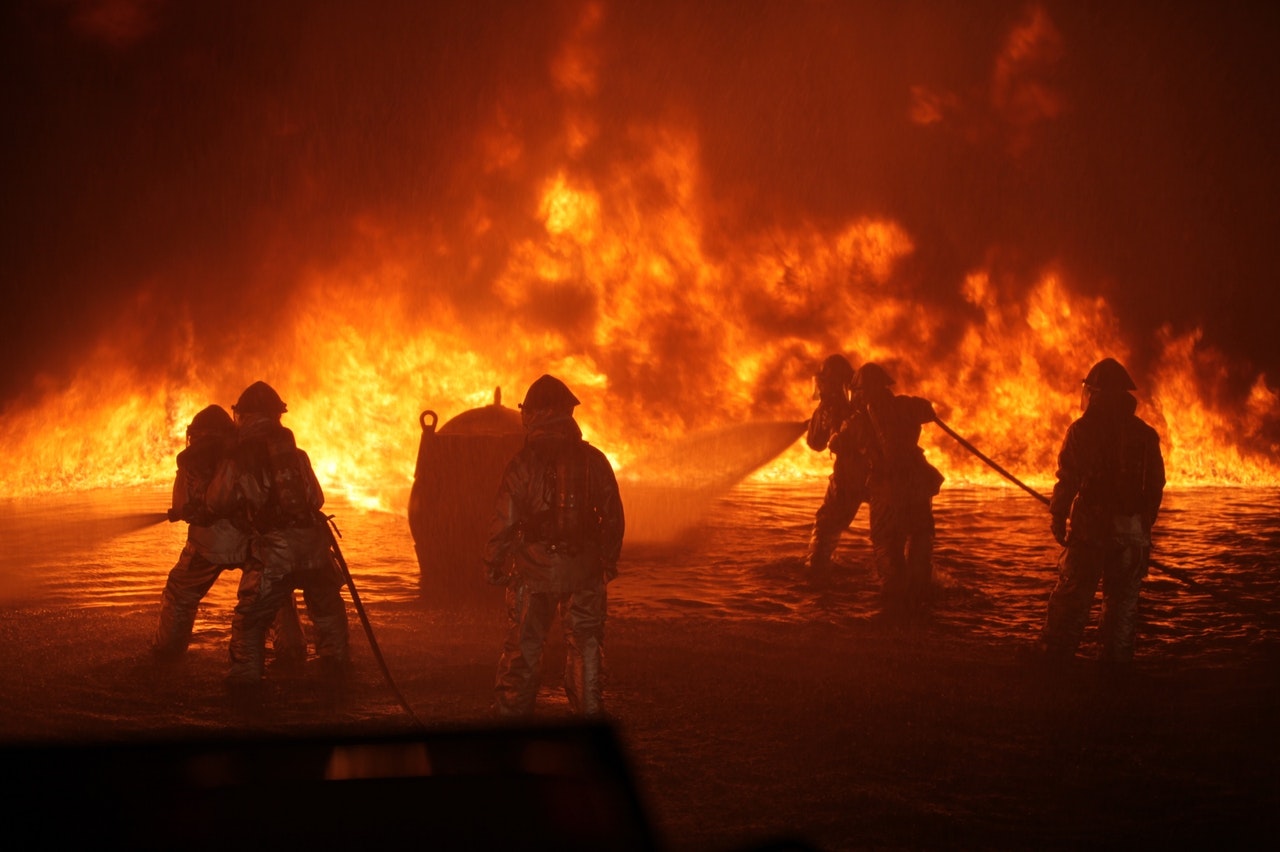Wildfires have scorched acres of land in the state of California. This year, the biggest California fire that damaged properties and forced massive evacuations took two weeks to extinguish.
As a result, wildfires have also been identified as one of the most potentially damaging events for a business. Falling victim to a fire can result in devastating consequences such as property damage, financial losses, and even bankruptcy. In addition, it can lead to fatalities and injuries. Fortunately, the California Division of Occupational Safety and Health (CAlOSHA) have enforced standards and regulations that employers must follow to protect themselves and their employees from harm.
These standards and regulations are specifically designed to guide businesses in preparing for emergencies, navigating disasters, and mitigating the damages and harm that these unfortunate circumstances can bring. Thus, it is essential for businesses to abide by these regulations. Here are the duties that employers must fulfill in the event of an emergency such as wildfires.
Implement an Emergency Action Plan
Employers must carefully develop an emergency action plan (EAP) and must train everyone in their organization to implement the EAP effectively. An EAP is designed to prepare businesses for unexpected events. It is essential for businesses as it helps employers and employees act fast during a workplace emergency. The emergency action plan will also help reduce the number and severity of property damage and employee injuries during an unfortunate event. An emergency action plan must include the following:
- Emergency evacuation procedures
- Emergency escape route assignments
- Means of reporting fires and other emergencies
- Procedures for employees who remain to operate critical plant operations before they evacuate
- Procedures in accounting for all employees after a completed emergency evacuation
- Procedures for employees performing rescue and medical duties
- Names and job titles of people to contact
It’s also important for employers to have a fire prevention plan (FPP), especially given the number of wildfire incidents. Here are the requirements of a proper fire prevention plan California:
1) The FPP must be in a written document. It must include the names and regular job titles of those responsible for the maintenance of workplace equipment and systems installed to prevent fires as well as those responsible for the management of flammable waste materials.
2) The FPP must have procedures on how to manage flammable and combustible waste materials so that they will not cause a fire emergency.
3) The FPP must have procedures on how to regularly maintain equipment and systems in the workplace to avoid fire emergencies.
4) The FPP must have a proper training program. The program should provide the following:
- Information about the fire hazards in the workplace
- Explanation of the FPP and guide for employees on how to protect themselves during the fire
- Procedures in handling and storing fire hazards and fire protection equipment
Dutifully Pay Employees
Businesses must always fulfill their employer obligations. Employees must always be dutifully compensated even during emergencies.
Paying Exempt Employees
Businesses that closed in the middle of the workweek because of a natural disaster like the California wildfires must pay exempt employees a full week’s worth of salary if they did any work during that week regardless of the number of hours or days rendered. However, if the business is closed for the entire workweek, exempt employees won’t get compensation.
Of course, employees may choose to use their vacation or other personal time if applicable. Employers may also choose to provide paid leave during emergency situations. Employers must be clear and just in setting the guidelines on these leaves if ever they choose to give them.
Paying Nonexempt Employees
If an employer closes their business at their own discretion and not due to the following reasons:
- threats to property or employees
- public utilities failure
- “act of God” or something beyond the employer’s control
They must also provide reporting pay. This means that a nonexempt employee who shows up for their scheduled shift but is not given work and sent home with less than half of their scheduled hours must be compensated for half of their regular pay for that day.
Monitor Air Quality
Wildfire smoke contains harmful chemicals that can be bad for the health. These can cause coughing, difficulty in breathing, and even worsen lung conditions like asthma. As such, businesses are now also required to ensure that their employees are not exposed to harmful air. They must calculate the air quality index (AQI), conduct proper training on wildfire smoke and use of respirators, provide respiratory protection equipment such as dust masks and respirators, and prepare a safe location with filtered air to reduce exposure to wildfire smoke.
Ensure Legal Compliance
Californian businesses must ensure that they have established and implemented emergency response policies that comply with California regulations. They must dutifully fulfill their obligations as these also reflect their legitimacy and character as employers. This will also help them avoid possible litigation from employees. Likewise, employees must know their employer’s duties and their employee rights. They must not hesitate to seek legal counsel if their employers are not legally compliant. Ultimately, employers and employees alike must know their responsibilities to protect themselves in the event of an emergency.
Ensure safety and compliance with the help of a trusted employment law firm in California. Get in touch with us today!








